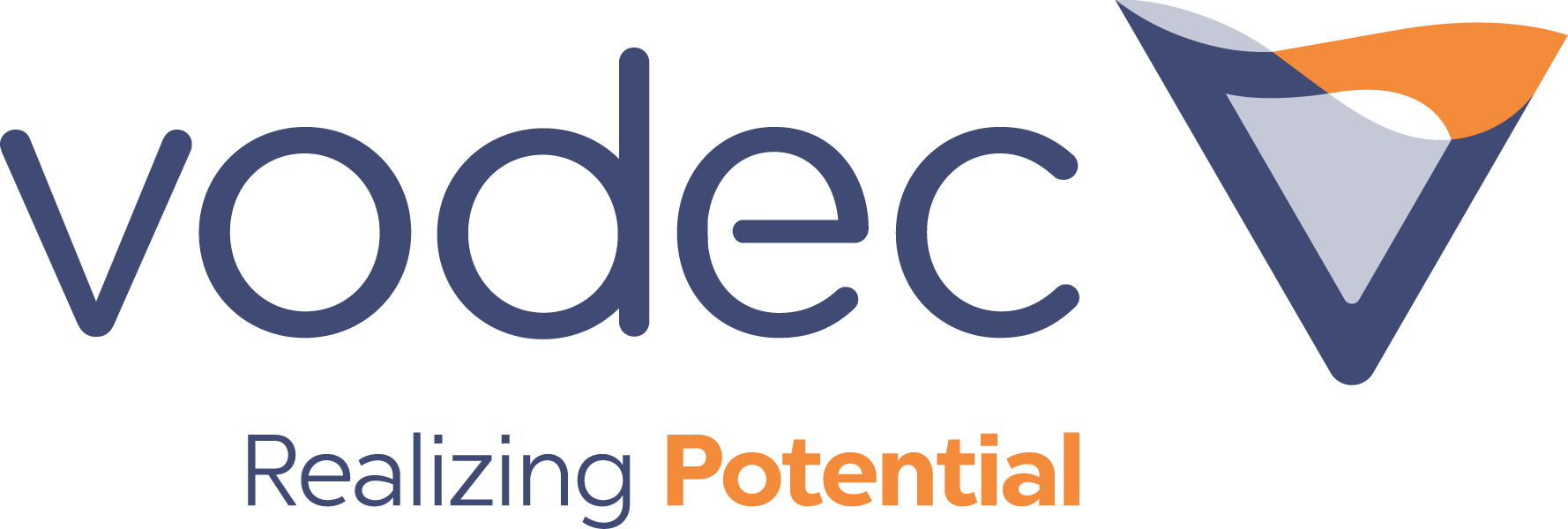by Vodec CEO Steve Hodapp
 This report is a summary of significant events occurring during fiscal year 2019 – July 1, 2018, to June 30, 2019. It was a year full of activity with little time to catch our breath. During it all, I was curious to see how things would play out. Overall, they played out nicely.
This report is a summary of significant events occurring during fiscal year 2019 – July 1, 2018, to June 30, 2019. It was a year full of activity with little time to catch our breath. During it all, I was curious to see how things would play out. Overall, they played out nicely.
I need to note that decisions made are weighed on their impact on services to consumers and on consumers directly. We want to make sure consumers have every opportunity to reach their full potential. Our intention is to be ethical and meaningful in what we do.
So, let’s begin.
Change in Transportation Services
We were shocked early in the year with news from the Nebraska Division of Developmental Disabilities that we would not be able to continue accessing subcontracted transportation for our Nebraska consumers in our day services. This practice would have to stop when the Division’s proposed Medicaid waivers were approved by CMS (Centers for Medicaid and Medicare Services).
The wild card was the anticipated approval date kept moving, so planning was challenging. Approval finally came and was effective Oct. 1, 2019.
To transition from using subcontracted services to internal provision service, we added 21 vehicles – including four mini-buses – to our fleet, we hired drivers and a transportation supervisor, and we invested in routing software and hardware.
Outside of a couple of bumps in the first week or so, the transition was successful. Kudos to all the folks who rose to this challenge!
Elm Facelift
Our Omaha Elm program at 7110 F Street got a facelift. Some interior walls were removed to create open space.
Flooring was replaced, lighting was updated, and warm and bright color was added to the walls following a palette ‘borrowed’ from Omaha Public Schools’ beautiful new J.P. Lord School that opened in 2018. The result was improved visibility and fewer barriers to mobility. I thank our internal design team and the construction crew for this enhancement to Elm service.
3-Year CARF Re-accreditation
We hosted a Commission on Accreditation of Rehabilitation Facilities (CARF) team of surveyors who reviewed our pre-vocational, supported employment, administration, Cares and Elm programs across Omaha, NE, and Council Bluffs and Urbandale, IA. Not surprisingly, the outcome was a maximum three-year re-accreditation! We were pretty happy with this.
IME Reviewer Visit
We also were visited by Iowa Medicaid Enterprise (IME) reviewers who explored our Home and Community Based Services (HCBS) in Council Bluffs and Urbandale, IA. The result of this review was a maximum three-year re-certification, about which we also very happy.
New Tiered Rates
During the year we learned new rates for services in Iowa would roll out in March 2019 and in Nebraska on a date tied to the Division’s proposed Medicaid waivers being approved. In both states, these are tiered rates, representing varied levels of need determined by a consumer’s skills’ assessment. Based on consumer census, we anticipated a net increase to service fee revenue in Iowa and a net decrease in Nebraska.
UHC Exits Iowa
In Iowa, another managed care organization (MCO) – United Health Care (UHC) – announced plans to leave the state before the end of the fiscal year. UHC was replaced by Iowa Total Care July 1, 2019.
This activity meant the reassignment of thousands of consumers who had been assigned to UHC and again when consumers were reallocated between Amerigroup and Iowa Total Care. Our role was to try keeping services in force to consumers in transition between MCOs.
This was challenging, as gaps in funding developed. This has forced us to become more business-like in our administrative services while remaining consistent in the provision of quality service to consumers.
One challenge facing us and Nebraska consumers interested in our employment training services was created with the Division’s assumed position of payor of last resort, meaning that it would not fund a perceived duplicate service provided by Nebraska’s Vocational Rehabilitation Services.
Though the position was challenged through the year, it was not until October 2019 that there was softening in the position supported by CMS. The gap of referrals for employment training negatively impacted not only potential consumers who wanted the service but providers, including us, who had the services to provide.
Supported Employment Services Gets Highest Rating
Vodec’s supported employment services in Council Bluffs received an overall CRP (Community Rehaf Provider) highest rating of 10, placing Vodec first among Community Rehab Providers throughout the State of Iowa. According to data collected during the federal fiscal year ending in early 2018 by the Iowa Vocational Rehabilitation Services (IVRS), Vodec was the only CRP to have an overall score of 10. Data was collected on 76 CRPs across the state.
Once again, congratulations and thank you to our Council Bluffs supported employment team. Certainly, there were other significant events, and you may ask about them. These are just those that were high points or particularly challenging.
Thank You
I thank the board of directors for another year of support of our mission. Directors volunteer their time and talents to provide guidance and direction to Vodec. I sense they do this in the spirit of being community minded. They are invaluable.
I offer appreciation to all the families and other stakeholders who entrust Vodec with serving consumers. They chose Vodec as the service provider. We all work very hard to maintain that trust.
I must also praise Vodec employees. These people care immensely about what they do. I observe them treat consumers respectfully and patiently. I hear their laughter and concerns.
There are not enough words to let you know how good they are, nor how appreciated they are.
The link above is a summary of the audit report for FY19 prepared by Schroer & Associates, P.C. The summary shows a statement of financial position and a statement of activities for FY19 in comparison with FY18. Vodec ended FY19 in strong fiscal health. This position comes from being prudent with resources while providing quality services to consumers. Financial oversight is done monthly by the board of directors. Monthly financial reports are reviewed in open-book style with the management team. There are strong fiscal practices and policies to assure prompt and accurate payments are made and an accounting for collections.
